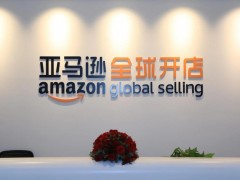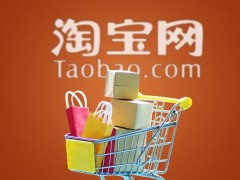Alibaba's organizational structure in 2021?
12月6日,阿里进行了新一轮内部组织架构调整,任命蒋凡负责新设立的“海外数字商业”板块,戴珊则接手其原有业务,负责“中国数字商业”板块。就其业务划分方式而言,在国内外环境发生显著变化的整体情况下,此次调整无疑非常贴合我国内外双循环的发展格局。与此同时,相当一部分海外国家和地区电商渗透率远低于国内的现状也使得跨境电商成为不少人眼中的新蓝海。
组织架构调整频率向来极高的阿里在2021年底不负众望,由其董事会主席兼CEO张勇再次以内部信的方式宣布了新一轮的内部变动情况。根据内容来看,此次调整幅度堪称近年来最大一次,再次升级了其多元化治理体系,并将阿里海内外业务整合后进行重新划分。其中,最令业内人士关注的无疑是海内外两大板块的相关情况。
针对国内愈发激烈的竞争格局,戴珊负责的中国数字商业板块由大淘宝(包括淘宝、天猫、阿里妈妈),B2C零售事业群,淘菜菜,淘特和国内贸易(CBU)等一层组织共同构成。
戴珊作为阿里巴巴最初十八位联合创始人之一,从1999年起,先后负责过客户服务、用户界面、销售、市场推广及人力资源等相关事宜,2017年开始担任B2B事业群总裁,分管集团旗下的国内外电商平台阿里巴巴和1688以及国际零售交易平台全球速卖通(AliExpress)业务。
2019年组织架构调整后,接手盒马事业群,全面负责打通盒马、村淘、智慧农业等业务。
对此业内人士认为,由分管B2B业务多年的戴珊负责阿里在国内最大的基本盘属于守成之举。一方面,国内竞争日渐激烈,阿里业内领先的地位与市场占有量一直面领着众多平台的冲击。另一方面,阿里在国内市场搏杀多年,目前的市场占有率很难再轻易出现大幅度提升,业务增量出现放缓态势,当务之急自然是守好地盘,稳住发展态势即可。相较之下,深谙阿里生存之道的戴珊无疑是个合适的人选。
至于向外寻求增量的商业诉求,则交由蒋凡分管的海外数字商业版块,其下辖全球速卖通和国际贸易(ICBU)两个海外业务的一层组织,以及Lazada等面向海外市场的多家子公司。
2013年,随着自己创办的移动开发者服务平台友盟被收购,蒋凡加入阿里并于次年带领团队建构了淘宝内容体系,使得淘宝从单一的网页端平台拓展至移动端。
2017年之后的数年间,蒋凡先后担任淘宝与天猫的总裁及法人,在2019年的组织架构调整中,还代表集团分管阿里妈妈事业群。
业内人士表示,仅从业务角度出发,在。国内外双循环的战略思想下,海外业务成为优先度极高的增量入口。而其具体拓展业务交由正值当打之年,且全程参与淘宝业务发展的蒋凡自然再合适不过。另一方面则在于,蒋凡去年以来因个人问题身陷舆论风波,在公司内部威望难免受到影响,转去负责海外业务对其个人未尝不是一个弥合机会。
Professional answer
On December 6, Alibaba carried out a new round of internal organizational structure adjustments, appointing Jiang Fan to be in charge of the newly established "Overseas Digital Business" sector, and Dai Shan took over its original business and was responsible for the "China Digital Business" sector. In terms of its business division method, under the overall situation of significant changes in the domestic and foreign environment, this adjustment is undoubtedly very consistent with the development pattern of China's domestic and foreign dual circulation. At the same time, the current situation that the e-commerce penetration rate in a considerable number of overseas countries and regions is far lower than that in China has also made cross-border e-commerce a new blue ocean in the eyes of many people.
Alibaba, which has always had a very high frequency of organizational structure adjustments, lived up to expectations at the end of 2021. Its chairman of the board and CEO Zhang Yong once again announced a new round of internal changes in the form of an internal letter. According to the content, the extent of this adjustment can be called the largest in recent years. It has once again upgraded its diversified governance system and re-divided Alibaba's domestic and overseas businesses after integration. Among them, the most concerned by industry insiders is undoubtedly the relevant situation of the two major sectors at home and abroad.
In response to the increasingly fierce domestic competition, Dai Shan is in charge of the Chinese digital business sector, which consists of Taobao (including Taobao, Tmall, and Alimama), B2C retail business group, Taocaicai, Taote and domestic trade (CBU).
As one of the original 18 co-founders of Alibaba, Dai Shan has been responsible for customer service, user interface, sales, marketing and human resources since 1999. In 2017, she served as president of the B2B business group, in charge of the group's domestic and foreign e-commerce platforms Alibaba and 1688 and the international retail trading platform AliExpress.
After the organizational structure adjustment in 2019, he took over the Hema business group and was fully responsible for connecting Hema, Village Taobao, smart agriculture and other businesses.
In this regard, industry insiders believe that it is a defensive move for Dai Shan, who has been in charge of B2B business for many years, to be in charge of Alibaba's largest base in China. On the one hand, domestic competition is becoming increasingly fierce, and Alibaba's leading position in the industry and market share have been facing the impact of many platforms. On the other hand, Alibaba has been fighting in the domestic market for many years, and it is difficult for its current market share to increase significantly. The growth of business has slowed down. The top priority is to defend the territory and stabilize the development trend. In contrast, Dai Shan, who is well versed in Alibaba's way of survival, is undoubtedly a suitable candidate.
As for the business demands of seeking growth, it is handed over to the overseas digital business section under the charge of Jiang Fan, which has two overseas businesses, AliExpress and International Trade (ICBU), and several subsidiaries such as Lazada facing the overseas market.
In 2013, with the acquisition of Umeng, a mobile developer service platform founded by himself, Jiang Fan joined Alibaba and led the team to build the Taobao content system the following year, allowing Taobao to expand from a single web platform to the mobile terminal.
In the years after 2017, Jiang Fan served as the president and legal representative of Taobao and Tmall. In the organizational structure adjustment in 2019, he also represented the group in charge of the Alimama business group.
Industry insiders said that from a business perspective alone, under the strategic thinking of domestic and foreign dual circulation, overseas business has become a high priority incremental entrance. And it is natural that the specific expansion of the business is handed over to Jiang Fan, who is in his prime and has participated in the development of Taobao's business throughout the process. On the other hand, Jiang Fan has been caught in a public opinion storm due to personal problems since last year, and his prestige within the company is inevitably affected. Transferring to be responsible for overseas business is not a bad opportunity for him to make up for it.
Similar Q&A
recommend How to get the first order from a new AliExpress store?
E-c News Continuously pushing e-commerce knowledge to you








Latest Q&A More
-
Do I need a trademark to open a franchise store on Pinduoduo to sell books?
#Pinduoduo#
-
How to withdraw from a Pinduoduo store
#Pinduoduo#
-
How to withdraw from Pinduoduo merchants
#Pinduoduo#
-
How to pay fees when closing a Pinduoduo store
#Pinduoduo#
-
How to withdraw from Pinduoduo
#Pinduoduo#
-
Which store on Pinduoduo is authentic?
#Pinduoduo#
-
Which stores on Pinduoduo can buy genuine products?
#Pinduoduo#
-
How to check the store under Pinduoduo
#Pinduoduo#
-
How to receive Pinduoduo online game products
#Pinduoduo#
-
How to sell the electronic version on Pinduoduo
#Pinduoduo#
E-c News 2025-10-11 17:06:28

- African netizens use China Africa cross-border e-commerce platform for online shopping
- how is the new seller of cross-border e-commerce doing?
- how can cross-border e-commerce Amazon sell on Amazon platform without goods?
- Amazon store opening process and cost analysis!
- Amazon plans to expand its pharmacy business on a large scale and will add same day delivery service
